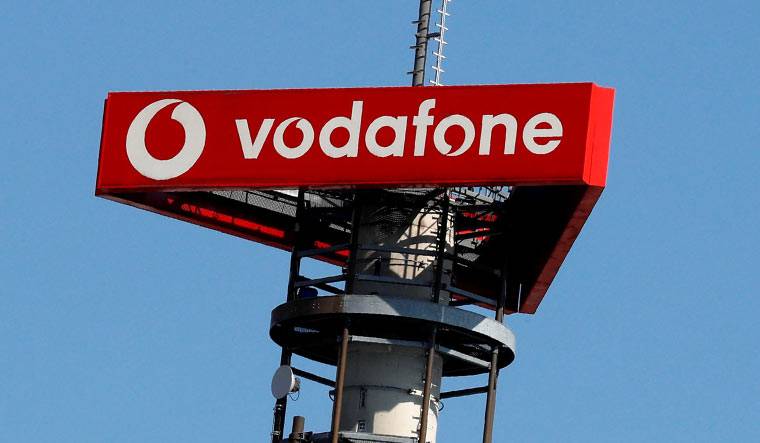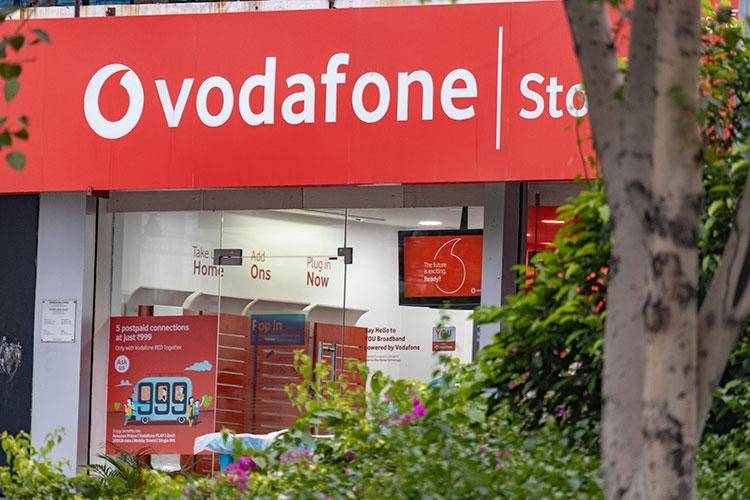Equity in India in Times of Pandemic
The pandemic has led to private equity in India to step into the current crisis riding a decade-long growth wave in transaction volumes and valuations. The value of some investments and investor confidence has been fairly dampened since the outbreak of the virus which continues to persist yet now.
The global financial crisis of 2008-09 for instance can be looked up, to provide a few insights into how PE funds might navigate the fallout from the pandemic. If we take history as a guide, many PE funds have been previously seen to cruise through the crisis staying on the sidelines, a little too long, which could lead to missing out on crucial investment opportunities.
Although there could be a sharp fall in deal-making in the short-term, PE funds are expected to learn from the past as high returns often emerge in times like these and can offset the losses during the downturn. The returns over the next couple of years will depend on how fund managers react over the next 12 months.
However, PE firms have massive amounts of unused funds that is readily available at their disposal coupled with money that has been raised but not yet invested. The subsequent expectation is that a large part of this money shall be expected to be earmarked for emerging markets, India being no exception. Private debt funds and special situation funds are more visible in the market and can help provide liquidity to businesses that are experiencing cash crunches, the much required prerogative currently.
While several investors are holding back until the ramifications of the pandemic become clearer, a few distinct themes are emerging that could shape private deal activity as the new normal evolves which includes:
- Deferment of deals: Deals are being deferred as investors are speculating the damage of the COVID-19 caused pandemic. While the deal network is highly robust, deal flow is expected to be slow specifically in the next couple of quarters. The driving factor here to determine the consequences would be the availability of the dry powder with the equity funds.
- Protecting existing portfolio: The primary goal of funds in the short term will likely be to look after portfolio companies. This would eventually take precedence over the search for new investment opportunities as some portfolio companies may need additional financing amid liquidity concerns owning to the government enforced long shutdown in the wake of the spreading virus.
- Difficulty in managing the valuation conflict between buyer and seller: Financial markets have been significantly disrupted across the globe. The pandemic has triggered a rout in the stock markets and market volatility has increased. Although PE investments are generally less volatile than public investments, there might be valuation challenges as sellers may be reluctant to part with assets given the precipitous fall in valuations. This could delay deal activity in certain cases.
- Availability of leverage for buyout deals: Of late, higher amount of leverage has been used in buy out deals. The availability of debt financing from banks could be a challenge and may cause a slowdown in buyout deals. Given the significant amount of available funds, of which a large part is for buyouts alone, deal-making could see an uptick, especially in distressed asset situations.
- Private debt funds and special situation funds expected to be more active: There is expected to be liquidity pressure on businesses owing to COVID-19 related disruption in demand. PE funds are expected to capitalise on this opportunity through innovative solutions such as debt restructuring and bridge financing.
- Increase in private investment in public equity (PIPE) transactions: As valuations in public markets decline, PIPE transactions are expected to pick up as PE funds take positions in quality assets at significantly cheaper valuations.
- Sector expertise will become more critical than ever: PE funds are expected to focus on sectoral themes with pharmaceuticals, technology, digital and healthcare expected to drive interest whereas the revival of sectors such as financial services, real estate and non-essential consumer goods and services may take some time. It will remain difficult to form an investment thesis for sectors such as aviation, travel, tourism and hospitality.
- Expected change in scope of due diligence: the current crisis highlights the importance of factoring in multiple scenarios and modelling unpredictable disruption in due diligence. Hence, the scope of due diligence will change significantly over the near term.
In light of these circumstances, PE funds will need to respond swiftly and strategically to the new business normal and drive transformation for companies.
The pandemic has brought about an extraordinary combination of quality assets going cheap and investors being cash-rich. The funds that can find the right investment opportunities in this difficult time will not only emerge stronger but also generate significant returns in the coming years.
Tags: equity funds, public equity, buyout deals, private equity funds in india, growth equity funds, equity in india
Humanizing Debt Collections
While the depiction of Indian stressed asset market is often painted to look dismal, the global slowbalisation has put the screws on government and regulators to take decisive action. In a similar vein, India’s bad debt headache was alleviated with the inception of SARFAESI Act, allowing banks to recover monies without judicial intervention.
Despite that, the problem of mounting non-performing assets grew multi-fold thereby enhancing the prominence and aggression of Asset Reconstruction Companies (ARC) in financial circles.
Need for Fair Practice Codes
In wake of the mounting NPAs, the banking sector is under immense pressure to get their house in order. Realizing this, banks resorted to offloading bad debts from their loan books onto ARCs thereby leading to a massive reduction in their distressed assets. However, during this exercise banks made no provisions for these bad loans in their books, and bore no losses in case of defaults. This issue led to the intervention by RBI in form of Fair Practice Code to ensure transparency in form of cash transactions.
Maintaining Transparency
Another reason for the need of the Code was that the sale of assets conducted by ARCs-in spirit-emerged to be no different from the sale of assets by state finance corporations or others vested with similar special powers of recovery. There have been many instances wherein ARCs sold assets through ‘private auctions’, and simply served a notice to the borrower.
In this procedure, no account of the sale proceeds, description of the buyer or competing bidders, information on how the asset was sold or expenses on the sale was provided to borrowers.
At this juncture, the RBIs notification will ensure transparent and non-discriminatory practises in terms of acquisition of assets. To curb the issues and unclear process of assets being sold to bidders where there is no trace of information of who these individuals are, the invitation to participate in the auction will be made public.
This will also provide transparency in the way how much assets were being sold. The Boards involvement to make sure these rules are being held up is of utmost importance. When dealing with buyers Section 29A of the IBC must guide the process. Simply put, a wilful defaulter or a person who was a promoter or was in the management of the corporate debtor, among other conditions would not be allowed to bid for the concerned insolvent company.
Thus, the notification aims to address issues of transparency and borrowers being kept in the dark during such sale of assets while keeping a check on the aggressive sale of assets by the banks and easy purchase by the ARCs.
Also, the sale of assets was not transparent and was far too commonly done at prices that do not represent fair values. Thus, these malpractices by the ARCs forced the RBI to come up with Fair Practice Codes to ensure transparency in transactions and keep a check on their practices.
Under the notification, ARCs are entitled to release all securities on the repayment of dues. If the right of set-off is exercised, then a notice to the buyer must be sent with information regarding full particulars of the remaining claim and the conditions under which ARCs are entitled to retain the securities till the relevant claim is settled or paid.
Ethical Recovery Processes
Hereafter, ARCs must ensure adequate training to staff to deal with customer matters appropriately. This will prevent or mitigate unlawful and uncivilised harassment inflicted upon debtors in the name of debt recovery processes. In the spirit of this Code, ARCs must establish a code of conduct for Recovery Agents and also hold the company accountable in case of breaches by their Agents.
A compulsory set up of a proper Grievance Redressal within the company should be constituted by ARC. The officer’s name designated to that redressal must be mentioned during the process. Such machinery will prove to be a step towards settlement of issues subsisting between the ARCs and the borrowers or the banks.
In addition to this, initiatives to address the absence of poor secondary market have been taken up. In intention to outsource an activity, a suitable outsourcing policy needs to be established, a delegation of authority depending on risks and materiality and systems to monitor and review the operations of these activities.
Conclusion
Overall, the RBI’s guidelines rewarding assertive steps yet ethical recovery practices are strides in the right direction. This move will rationalize recent trends in the industry and prove advantageous to various stakeholders in the stressed asset sector, including defaulting borrowers. In light of the new guidelines, ARCs are likely to change their bidding strategy and cherry-pick deals backed by ‘hard’ assets reducing the number of deals.
At the heart of ‘Fair Practices Code’ guidelines is the protection of debtor by humanizing the recovery process while striking an optimum balance between lender-borrower interests in the recovery framework. With an emphasis on compliances, transparent and non-discriminatory practices in the acquisition of assets and required release of securities upon repayment of dues, the FPC guidelines may collectively help insulate debtors from the clutches of the sale process.
Adherence to these guidelines will place these bad bank sponges on a game-changing pathway leading to reduced NPAs thereby reviving stressed assets in the banking sector and the Indian economy one step at a time.
Tags: fair practices code, the debt collector, collection agency, credit collection services, debt collection services, debt management and collections system, debt recovery, debt collections
A Fresh Start for Companies
The onset of the pandemic changed the calculus of the world opening up audacious possibilities like never before. Undeniably the extent of the damage caused to the world is enormous. Despite so, the big question now is “What Next?” Covid-19 while caused unimaginable disruptions worldwide, yet then it has offered unrivaled opportunities to plummet.
In such given circumstances, companies are bailing for fortuity under the Companies Fresh Start Scheme announced by the Ministry of Corporate Affairs.
The legislative framework clearly mandates the companies to file requisite documents including annual returns and financial statement with the RoC. Failure to adhere to the guidelines as well as failing to file requisite documents calls in several penal action as well.
However, the statistics of the past clearly reveal that a number of companies have been inoculant in complying with the filing requirement. This calls for unnecessary consequences for the directors facing penal sanction as well as the administration involved in the process. Additionally, the NCLT is burdened with compounding cases.
In an attempt to start a fresh and let companies evolve as compliant entities the CFSS has been introduced to mitigate the unnecessary implications called in. Such amnesty scheme was not introduced for the first time recently. There has been a decade of considerations to fix this scheme for building up a robust mechanism mitigating the lacunae herein.
In light of the unprecedented circumstances put forth by the pandemic, the MCA has resolved to reduce the burden of compliance lingering over the doomed companies. It provides the much required breather for the defaulting companies to enable them start fresh post the pandemic.
Admittedly, the CFSS is veritable nature. It elucidates in detail the companies eligible to avail the benefits primarily amongst other things. Herein the scope of defaulting companies have been widened. There is no explicit mention of companies undergoing CIRP and the logical inference would be to realise that such companies could also avail the benefits provided under the scheme.
Notably, the companies defaulting on filings have been allowed to file its pending documents with the registry without the payment of any additional fees.
The defaulting company has been granted immunity from any consequential proceedings, which comes in as a big sigh of relief for much of the distressed companies in the light of the current precarious ongoing. There has been a precise mention of condoning delays in compliance of statutory post completion of the filing process. There has been also provision made for appeal on grounds of violation of the Companies Act by the adjudicating authorities.
It further contemplates of situations where an appeal could not be preferred against an order of penalty imposed by the adjudicating authority given the circumstances prevailing in the country since early March. The limitation period for all such instances has been further extended by a period of 120 days. There has been detailed exclusions provided for all such companies dealing the turbulence of the pandemic and for the said purpose specific conditions have been put out.
CFSS is a beneficial scheme, specifically in the current pandemic scenario, providing an opportunity to non-compliant companies, to have a fresh start in terms of their statutory compliances. It also provides respite to inactive companies, who will have an option to either become a dormant company, or get their names struck off from the registers.
Additionally, since there are no additional fees to avail the benefit of CFSS, all defaulting and inactive companies, should definitely consider opting for CFSS and becoming compliant with statutory filings. However, if they fail to do so and continue to be in default, the concerned RoCs having jurisdiction over the companies may take action in terms of the Act.
Besides being beneficial to companies, it will provide significant relief to overburdened NCLTs and NCLATs by reducing the number of pending compounding cases and other cases for non-compliance. This will help in achieving the long-time objective of de-clogging these tribunals and other courts so that cases of a more serious nature could be pursued expeditiously and with enhanced rigor.
Tags: fresh start companies, the post covid era, post covid era, fresh start for companies, new Start for Companies, post covid era in india








